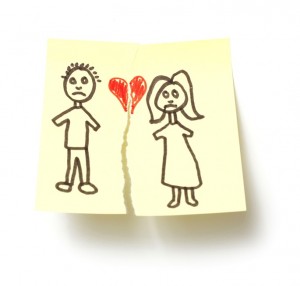
Talking therapies for mental disorders are an ever-expanding field, with variations in treatments appearing all the time. It can be hard to know which treatment path to recommend to a patient, or which one you might choose for yourself.
Major depressive disorder (MDD) is characterised by episodes of low mood, loss of self-esteem and interest in activities (DSM-IV). Statistics show that nearly 7% of adults in Europe experience depression at any one time (Witchen, 2005). NICE guidelines recommend antidepressant medication and/or Cognitive Behavioural Therapy (CBT) or Interpersonal Therapy (IPT) for the outpatient treatment of MDD without chronic physical illness. Which of these treatments are likely to have the best outcome?
A systematic review published in BMC Psychiatry (Van Hees et al 2013) has attempted to address this question. The review examined whether individual IPT is more effective at treating depression than alternative talking therapies, medication or usual care.

Interpersonal Therapy is often recommended as a treatment for depression associated with relationship conflict and loneliness.
IPT, like CBT is a time-limited, structured talking treatment for depression. It focuses on how the relationships of the depressed person may be connected to their mood. Particular uses of IPT include treating depression associated with loss of role, bereavement, relationship conflict and loneliness.
Methods
Authors conducted a thorough search of the literature published between Jan 1970-Aug 2012 to find randomised controlled trials (RCTs) that compared IPT to other treatments. Only 8 out of 2,981 studies found matched their strict inclusion criteria. Participants had to have a diagnosis of MDD or postpartum depression and be between 18-65 years old. Of 1,233 participants included, 854 (68%) participants completed their outpatient treatment. 392 of these received individual IPT.
Results
- IPT vs medications
- IPT+ nefrazadone was better than nefrazadone or IPT alone (adjusted OR 3.22 (1.02-10.12, P=0.045)
- IPT was as good as venlafaxine at 6 weeks
- IPT vs other talking therapies
- CBT was similar to IPT (mean difference in treatments 1.01 (95% CI: -0.04-2.37)
- Cognitive Behavioural Analysis System of Psychotherapy (CBASP) was slightly better than IPT (mean BDI 10.79 vs 21.7 p=0.047)
- IPT vs no treatment
- Having IPT and usual care was better than usual care alone (p=0.017)
Conclusions
The authors concluded:
Several kinds of treatments are effective or efficacious for depressed patients.
The difference between the effects and efficacy of several types of treatment are very small and not always significant.
They recommended that:
Policy makers are advised to base regulations on the effectiveness of treatment in general, instead of a slightly different effect between one treatment and the other.
Limitations
- Strict inclusion criteria mean that the results are not generalisable to individuals suffering with other types of depression, comorbidities or from different age groups
- It is a small review. 8 studies are not really enough to be confident that bias has been eliminated
- The variety of treatments assessed make comparison of each study difficult
- No studies compared IPT to selective serotonin re-uptake inhibitors, the usual first choice of antidepressant (NICE)
- The review did not examine behavioural activation or behavioural couple therapy, other talking therapies recommended by NICE
In summary

Choice of treatment should come down to an individual’s personal preference, illness severity, resources and consideration of the negative consequences of the treatment
IPT is equally as effective as any one treatment alone, best when combined with medication and better than nothing (as we would hope!). Sadly, this Elf is not jumping up and down with excitement, as this study is too small to answer her question. We need more RCTs in this area (surprise surprise!). Choice of treatment should come down to an individual’s personal preference, illness severity, resources and consideration of the negative consequences of the treatment.
Links
Van Hees MLJM, Rotter T, Ellermann T and Evers MAA. The effectiveness of individual interpersonal psychotherapy as a treatment for major depressive disorder in adult outpatients: a systematic review. BMC Psychiatry 2013, 13:22.
Witchen HU, Jacobi F. Size and burden of mental disorders in Europe: a critical review and appraisal of 27 studies (PDF). Eur Neuropsychopharmacol 2005, 15:357-376
Depression in adults: the treatment and management of depression in adults (PDF). NICE, CG90, Oct 2009.
Mental health information leaflet on psychotherapies. Royal College of Psychiatrists, Sep 2009.


Great summary Amy, with results which do not suprise me. Sadly patient choices are often influenced by the limitations of what is available and accessible locally.
You can walk out of a GP consultation with a prescription for anti-depressants on the day – however access to CBT and/or IPT often requires a further assessment and long waiting times. As a patient wanting to get better sooner rather than later, anti-depressents are often the most convenient option.
This inequity needs to be addressed to order to offer patients a true ‘choice’.
Debut blog from @ag2460 about a new SR of interpersonal psychotherapy for depression http://t.co/U2Phjtx4Rg
Antidepressants vs CBT vs interpersonal psychotherapy. What works best for #depression? http://t.co/U2Phjtx4Rg #IPT
@Mental_Elf I found combination of CBT & #antidepressants best, but coming off them… eek! My blog: http://t.co/IaviMyMfZ8 #mentalhealth
New blog from @TARGBristol ‘s @ag2460 on interpersonal individual psychotherapy for depression: http://t.co/6yJ44GcAXU
MT @Mental_Elf #Antidepressants vs #CBT vs interpersonal psychotherapy. What works best for #depression? http://t.co/7Zpne3Tdor #IPT
The difference between the effects & efficacy of several types of #depression treatment are very small http://t.co/U2Phjtx4Rg
@r0gue_lips http://t.co/JEDtgf6nQx
So many treatments for major depression to choose from. How does interpersonal psychotherapy compare to the rest? http://t.co/FK8r347J1L
New SR compares individual IPT with other talking therapies and drugs for treating depression http://t.co/U2Phjtx4Rg
Post link
http://t.co/8y8ZFelI9w so many treatments for depression
How does individual interpersonal psychotherapy compare to the rest? http://t.co/9RswLvhFLe
This was a nice review, but the conclusion surprised / disappointed me a bit. For almost 80 years people have suspected that most forms of psychtoherapy have equal effectiveness, starting with Rosenzweig. In the past 40 years thousands of RCTs have been conducted, and through meta-analysis and systematic review it is clear that this verdict is pretty robust (See also 6 editions of Bergin & Garfield’s Handbook). Most people who look at this evidence say that scarce budgets for psychotherapy research should be redirected and stop comparing schools / types of psychotherapy.
So why this conclusion, “We need more RCTs in this area”? That’s emphatically not what.s needed, in my opinion. As author of this blog, you could have brought that out – you seem to be aware of the “equal effectiveness” presumption…..
Comparison in BMC Psychiatry of treatment eff’ness of #IPT for #depression . Are more RCTs like this needed? http://t.co/DuH8W5i35U
Great debate being sparked here by a well presented blog. “The Heroic Client” (Duncan et al.) thesis supports the notion that the RCT from the past 40 years show that no one therapeutic model “out performs” any other. So this review seems to add weight to this theory. In England, the IAPT (improved access to psychological therapy) has and is improving both availability (waiting times are down to less than 28 days in some areas) and choice of therapies. The NHS reforms are all about giving patients more choice, lets hope that they get what they prefer and not what ill informed “experts” prefer! Keep up the excellent work.
Some very interesting points raised. One of the main limitations of this systematic review was the heterogeneity of the individual studies. This makes it very difficult to say with certainty from this SR that IPT is equally as effective as other psychotherapies. As with many areas of mental health research robust, large, generalisable studies are always welcomed. I felt that this was lacking in this SR.
I have recently had a very interesting discussion about whether an RCT is the most appropriate way of evaluating a psychological therapy. Outcome measures such as BDI or HADS scores are not representative of all of the benefits gained by individuals who have undergone psychotherapy. Qualitative methods can be enlightening but play second fiddle to the RCT. How else can you evaluate some of the key components of psychotherapies such as therapeutic alliance? I’m interested to hear other people’s thoughts on this.
Amy, are you aware of the Session Rating Scale eg as in the article: The Session Rating Scale: Preliminary Psychometric Properties of a “Working” Alliance Measure? This is a very simple tool for therapists and patients. It seems to gathering momentum. Below is a link to the article – I would be interested in your views. http://www.myoutcomes.com/documents/The_Session_Rating_Scale_Psychometric_Properties_of_a_Working_Alliance_Scale.pdf
[…] Les omtalen i The Mental Elf her […]
[…] we Elves have covered with interest, looking at the effectiveness of various treatments, like psychotherapy, medication and exercise. For older adults though, there remains a somewhat hazy picture of what […]